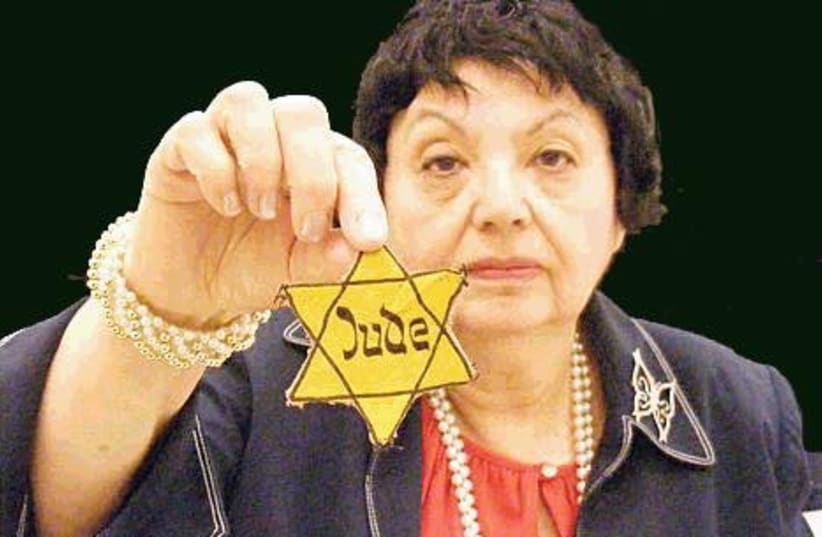German-born Holocaust survivor Inge Auerbacher will speak about her experiences as a Jewish child survivor of Nazi ideology on Holocaust Remembrance Day, January 27, at the German federal parliament.
“I am so honored to be given this opportunity” she said this week from her home in New York.
Auerbacher, 87, was born in Kippenheim, Germany, in 1934. She was the last Jewish child born in the town and lived through Kristallnacht, the pogrom known as the Night of Broken Glass.
In 1942, she and her parents were deported to the Theresienstadt concentration camp, where they spent three years. Auerbacher was among the 1% of 15,000 children who survived Theresienstadt. She and her parents survived the Holocaust and immigrated to New York in 1946.
Shortly afterward, Auerbacher contracted tuberculosis, exacerbated by malnutrition in Theresienstadt, and was hospitalized for three years. Despite missing eight years of education in her youth, she graduated from high school in Brooklyn and studied biochemistry at Queens College. She worked as a chemist for 38 years.


In 1986, Auerbacher published a book, I Am a Star, named after the yellow Jude star that Jews had to wear in Nazi Germany. Jude means Jew in German.
Auerbacher said she would address the Bundestag members in German, her first language, and intends to talk about her life experiences and recount her family history.
Auerbacher’s ancestors had been in Germany for centuries. Her father was a disabled World War I veteran and had many relatives who had died for the “fatherland.”
A relative of hers, renowned poet Berthold Auerbach (spelled differently), was honored by Germany, and a street was named after him, Auerbachstrasse. The street was renamed by the Nazis since it was named for a Jew, which was illegal in their ideology.
International Holocaust Remembrance Day falls on January 27, the date Auschwitz was liberated by the Red Army, but Auerbach marks a different date every year.
“I was liberated by the Soviets on May 8, 1945, and every year I celebrate that date as my second birthday,” she said. “I am truly grateful to the Bundestag for inviting me to share my story with them.”
